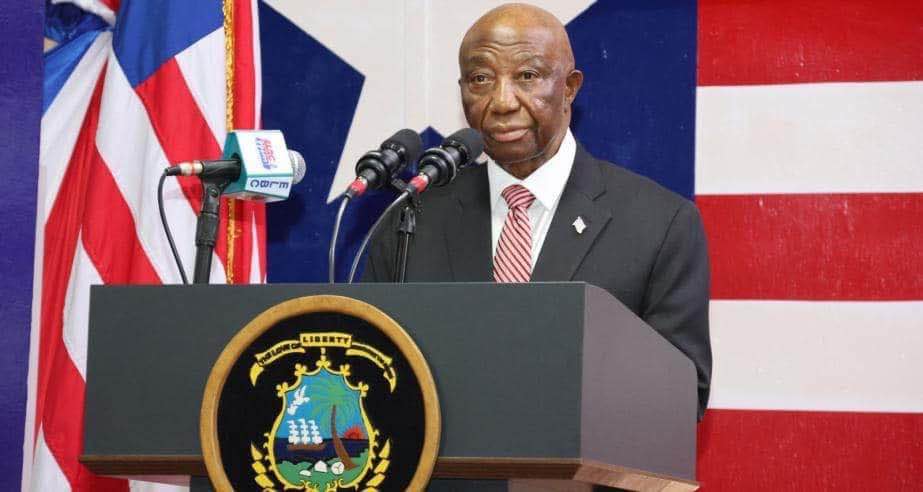IN SONA ADDRESS, PRESIDENT BOAKAI OUTLINES GOVERNMENT’S 2024 ACHIEVEMENTS DESPITE CHALLENGES INHERITED

January 27, 2025
President Joseph Nyumah Boakai has outlined major achievements of his government in 2024, despite inherited challenges. Addressing the Liberian Legislature, Monday, January 27, 2025, on the State of the Nation, President Boakai emphasized that significant progress has been made across several sectors of government including Economy, Agriculture and Rural Development, Road infrastructure, Education, Youth empowerment, Social Services improvement, and Tax Reform and governance amongst others.
The Liberian leader noted that Economic growth has hit a GDP growth rate of 5.1% in 2024, reduction in inflation to 7.7%, and improved foreign reserves. These achievements, according to the Liberian leader underscore economic resilience. In Revenue Mobilization, president Boakai highlighted a record-breaking domestic revenue collection of $695.3 million and the successful implementation of a Value-Added Tax (VAT).
The Liberian leader furthered that there has been an increase in salaries for health workers, teachers, and police officers, with efforts to reduce commodity prices; and disbursement of County Development and Social Development Funds. In the area of infrastructure, President Boakai named Road rehabilitation, maintenance projects, and improvements at Roberts International Airport to transform it into a regional hub amongst others as massive Improvements made in Liberia’s infrastructure development.
Additionally, President Boakai highlighted strengthened financial systems and proposed reforms for state-owned enterprises, the insurance sector, and public financial management as sectors that experienced progress in the governance of the state during the year under review. According to President Boakai, his administration inherited an economy in steep decline, with Liberians facing unprecedented hardships including rising unemployment, inflation, and growing inequality.
“Before our administration, growth had slowed to just 4.6 percent, while inflation surged to double digits at 10.1 percent, driven largely by rising food and fuel prices. The current account deficit (at the time) had worsened to 26.4 percent of GDP, international reserves were dangerously low at just 2.1 months of import cover, and our debt burden had ballooned to $2.5 billion, or 54.6 percent of GDP.
Civil servants were facing extreme hardship due to pay “harmonization” and delayed salary payments, leaving them vulnerable to payday lenders and informal financial schemes like Susu clubs.” President Boakai added. However, the Liberian leader added that his administration did not just recognize these challenges and their impact on Liberian citizens, but also took decisive action to increase the salary of health workers, police officers, and teachers. Moreover, President Boakai noted that Strategic investments in infrastructure and energy development, supported by international partners such as the World Bank, the African Development Bank, the European Union, and USAID, further bolster this expansion of his administration progress. According to him, during the year under review his administration managed inflation prudently, thus reducing it to 7.7% by the end of 2024, down from 10.1% in 2023.
The Liberian leader also thanked sound fiscal and monetary policies for the progress, with a hope of decreasing inflation to 6.0% in 2025. President Boakai also informed the Liberian Legislature that the country’s international reserves have improved to US$458.9 million, and the Liberian dollar has been appreciated by 4.7% against the US dollar. He also noted that the Central Bank of Liberia has reduced the monetary policy rate from 20% to 17%, boosting confidence in the financial system.
As a result of these reductions, President Boakai said private sector credit has also increased by 9.1%. Meanwhile, President Boakai expressed excitement about Liberia’s fortune to have many qualified and capable women who have challenged traditional job roles cannot be overemphasized. The Liberian leader added that Gender sensitivity and inclusion are high priorities of his administration, noting that Liberian women hold 39% of ministerial positions and 31% of deputy minister positions. According to him, this trend continues at the superintendent level, where women make up 40% of all appointments.



